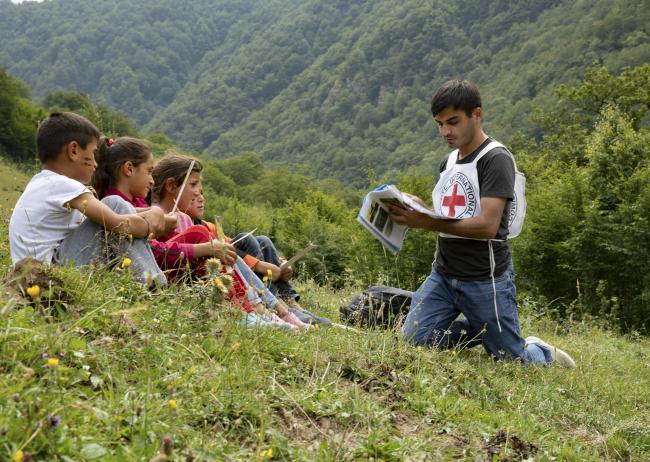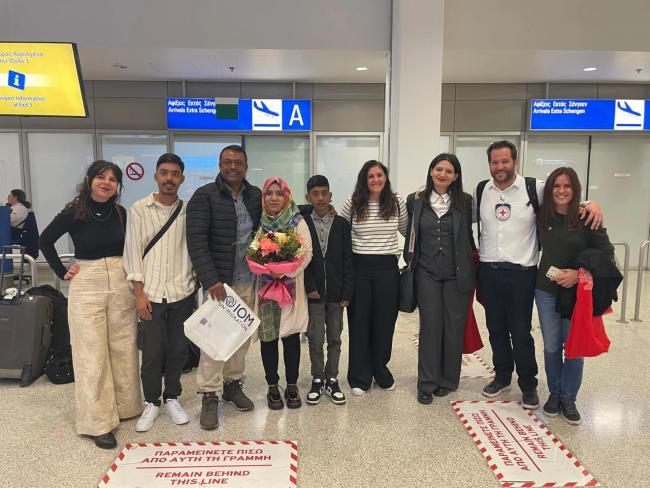Azerbaijan: The recovery and identification of people missing in connection with the conflict

For over 30 years, the ICRC has been supporting the authorities in Azerbaijan in their efforts to find out what happened to those who went missing during the conflict in the region in the 1990s. In early 2022, the ICRC approached the Azerbaijani government with a proposal to carry out a pilot project to search for, recover and identify the remains of conflict-related missing persons. The objective of the project was to bring together authorities and others involved so that families could finally lay their loved ones to rest in dignity and respect.
The project focuses on six specific gravesites linked to the remains of multiple missing persons. The ICRC is working with several agencies and supporting the preparation, planning and implementation of the excavations, forensic examinations, DNA matching, reconciliation of information and handovers of human remains to the families concerned.
As part of the project, several bespoke activities have been arranged to help train the authorities and forensic practitioners. In May, the ICRC accompanied a group of high-level decision makers from Azerbaijan on a study tour to the Commission of Missing Persons in Cyprus to see a successful working mechanism and forensic best practices in operation. In July, in cooperation with the State Commission on Prisoners of War, Hostages and Missing Persons, a workshop was organized to bring together key authorities involved in the exhumation and identification processes, where participants developed concrete terms of reference, a multi-agency roadmap and a comprehensive plan of action for the pilot project. In November, six forensic specialists (medical doctors from the Forensic Institute and archaeologists and anthropologists from the National Academy of Science) were supported to attend a short technical training course given by the Commission of Missing Persons in Cyprus to further enhance their knowledge and technical skills.
The excavations of at least four of the sites were completed in the second half of 2022. This resulted in the successful recovery of human remains, which are currently going through the process of forensic examination and laboratory testing for the purpose of identification.
The pilot project is an excellent example of innovative capacity strengthening at multiple levels through active case work. The project will continue in 2023 with additional excavations, and establishing working groups on exhumation, reconciliation and identification protocols, as well as keeping the families of missing persons properly informed and part of the project.




